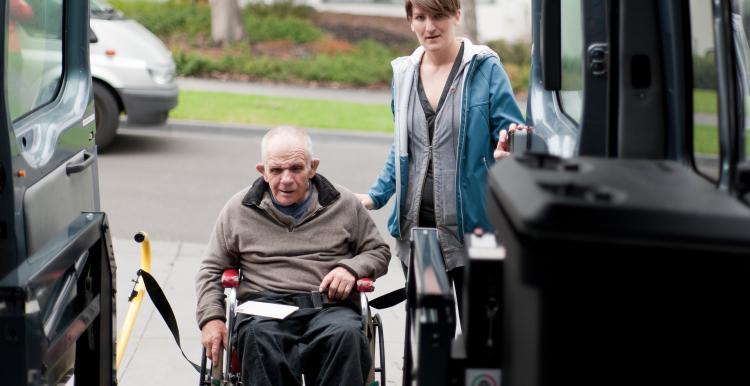NHS England has heard your experiences of patient transport

NHS England announced they were reviewing non-emergency patient transport following the publication of a series of reports highlighting specific challenges with patient transport services.
One of these reports was work undertaken by Healthwatch England. In partnership with Age UK and Kidney Care UK, we have been working with the NHS to take action. In partnership with Age UK and Kidney Care this report highlights their collective evidence in their call for change.
Read the Healthwatch England report
Through this call for evidence we have looked at 4 years of patient experiences shared by you to bring together the main challenges that users of this service face in Richmond upon Thames.
Challenges
Access
- Eligibility criteria are not standardised between hospitals.
- Strict eligibility excludes people from the service. Non-eligibilty is particularly challenging for those on low income who don't have friends/family that are able to take them.
- Patients being refused transport is also a problem when returning home following discharge from Hospital.
Following a stay in hospital for pneumonia this person was discharged without transport home. They had no alternatives and had to travel a considerable way on public transport despite still being unwell
Booking
- Many people are unsure how to book the service and some are unaware of the service.
- Service users report confusion over who is responsible for booking the transport e.g. the service user, their GP or the hospital. The onus of booking often falls to the patient which can be a heavy responsibility
- The booking process can be convoluted and inconsistent. It is often difficult for the patient to navigate with patients not knowing how to find the right information and the information may not be up to date.
- Service users told us about the difficulty getting through on the phone to the patient transport provider.
- A patient who attends regular appointments at different hospitals reported the difference between providers caused frustration.
Service Failures
- Patients are negative about the long window (2 hours) they are given for pick up.
One patient reported that for a morning appointment they had to be up at 5 am to get ready for patient transport.
- Patient transport being delayed and not arriving in the agreed time window. This is inconvenient and can cause patients to be late or possibly miss their appointment. This also has an impact on the patient's nerves and anxiety.
- A consequence of missing the appointment is that patients can be moved to the bottom of the waiting list when rearranging the appointment or possibly discharged from the service.
- Delays or changes in the plan will also affect those involved in the care of this individual (e.g. carers, family, care home managers and sheltered housing scheme mangers etc.) to be kept .
-
The other challenge for patients is that booked patient transport can arrive and not be suitably adapted for that patient’s physical disabilities or mobility.
The transport arrived for a wheelchair user that could not accommodate a wheelchair and this patient was asked to transfer to a bed, this was a stressful and humiliating experience for this patient.
- It is important for a carer to be kept up to date with the plan for patient transport particularly when they aren’t able to travel with the patient.
- When a service failure happens patients have regularly told us about the difficulty they have in making a complaint. It is not clear how to complain to patients or who to complain to.
Suggestions on how to improve services
- Eligibility criteria and method of booking needs to be standardised to make this process smoother. This process should be clear and transparent and should involve patients/service users in re-evaluating criteria.
- The process for identifying patients who are eligible should be improved as patients aren’t armed with the information that is required.
- The booking system should be simplified and stratified. There needs to be improved information sharing with patients. Information could be provided on hospital appointment letters providing the contact number and useful information for the patient to know before booking.
- Transport providers need to be held to performance standards in regards to length of time to answer the booking phone.
- Patient transport providers should provide updates to patients when delays or rearrangements occur. Text updates or automated voice messages on the day of pick up would be useful, that would let the patient know when they are the next patient to be collected.
- Patient arriving by patient transport who are late should not be negatively impacted e.g. discharged from service or faced with long wait for next appointment.
- Clear criteria needs to be set for when carers should be allowed to travel with their ‘cared for’ person.

